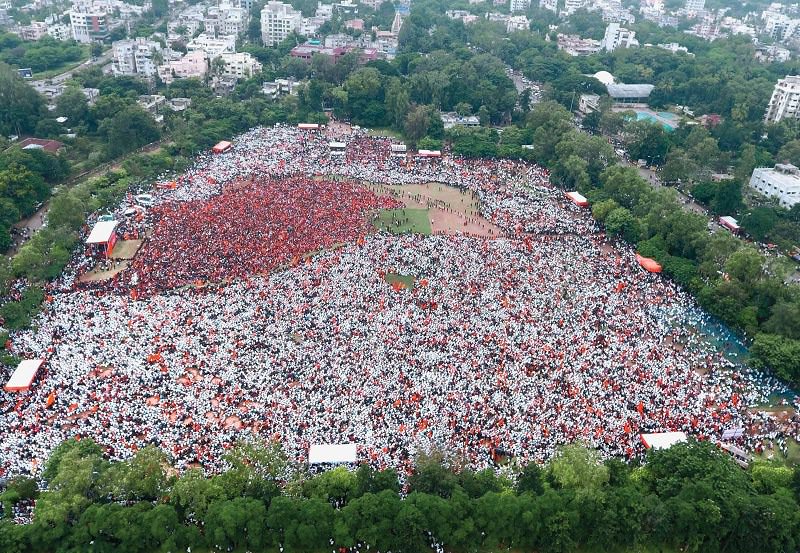Denemek ALTIN - Özgür
The Coming Caste Wars
Outlook
|October 31, 2016
The growing clamour for reservation to society's shrinking ability to fulfil the dreams globalisation unleashes

FROM violence to silent marches, the unlikely warriors —the intermediate castes of north and west India, in particular, Jats, Patels and Marathas—are on the war path over reservations. So, the nagging questions emerge: why does everyone want ‘reservations’? Why have certain communities become restless at the present juncture? Where do we go from here?
A short detour of ‘Mandal’ is necessary to put things in perspective. OBC reservations and share in power were the essence of the Mandal issue, though the latter point was not formally part of the recommendations or the policies. By the latter half of the 1990s, it looked as though a consensus had finally emerged on the Mandal (or OBC) question. No political party was opposing OBC reservations and all of them were also keen to accommodate the political claims of communities identified as OBC.
Mandal, of course, was a double-edged weapon. It had possibilities of transcending caste by building caste blocs and opportunity for democratic expansion. Yet it also contained the possibility of strengthening caste awareness and narrowing the concept of democracy to group claims. Its supporters (this writer was among them) expected the former to happen. The way politics played out over the past quarter of a century, the former possibilities were outweighed by the latter. Thus,the unintended consequences of Mandal constitute the larger context in which the present spate of agitations by the middle peasantry castes needs to be understood.
Four processes have coincided in producing the present moment of unrest. Let us first look at the process not directly involving caste. Nobody seems to be wanting to talk about this aspect—the effects of the economic policy process. But it is relevant at two levels.
Bu hikaye Outlook dergisinin October 31, 2016 baskısından alınmıştır.
Binlerce özenle seçilmiş premium hikayeye ve 9.000'den fazla dergi ve gazeteye erişmek için Magzter GOLD'a abone olun.
Zaten abone misiniz? Oturum aç
Outlook'den DAHA FAZLA HİKAYE
Outlook
Free the Word
Book bans are about fear, control and the desperate need to manage public imagination
7 mins
July 11, 2025

Outlook
Yeh Duniya Agar Mil Bhi Jaye to Kya Hai
Guru Dutt, whose birth centenary falls this July, created cinematic masterpieces amid the fog of his own uncertainty
6 mins
July 11, 2025

Outlook
When the Words Stop
Our worst algorithms have come home to haunt us. The nightmare is no longer something we dream up. It is dreamt on our behalf
16 mins
July 11, 2025

Outlook
Rath Jatra
Is Mamata Banerjee's embrace of Lord Jagannath the latest counter to the BJP's Ram-centric politics?
5 mins
July 11, 2025
Outlook
Zan, Zindagi, Azadi
As missiles fall silent—for now—it's time to explore whether the heart of the Iran-Israel conflict lies in a deeper battle over culture and values
3 mins
July 11, 2025

Outlook
The She Voter
Political parties in Bihar are looking to woo women voters—who constitute almost half of the vote bank—ahead of the state Assembly election
7 mins
July 11, 2025

Outlook
Veil, Women and Warfare
Policies—whether in the West or in the Muslim world—are imposed on women, not developed with them or for them. How they dress becomes shorthand for community honour, nationalism or piety
8 mins
July 11, 2025

Outlook
Forever Hotel
This novel is a flawed, luminous, maximalist love letter to Kolkata’s layered soul
4 mins
July 11, 2025

Outlook
Regimentation
The US has zero moral authority to want to tell the Tehran regime to behave itself or be nice to its own people
5 mins
July 11, 2025
Outlook
The Way We War
Modern warfare is a shape-shifting entity and the information explosion has expanded the battlespace far beyond the battlefield
5 mins
July 11, 2025
